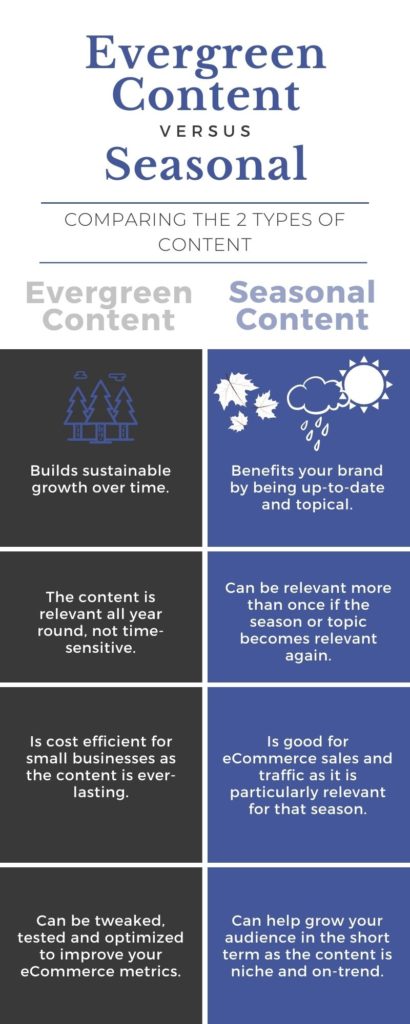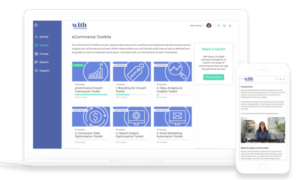What is a social content calendar?
An social content calendar is the co-ordinated planning of the publishing of your content across your digital footprint (website, social platforms, email etc).
We recommend that small business think about ‘evergreen’ content for their social content calendar.
Evergreen content refers to marketing content that will always be relevant to your audience. It aims to cover ever-present topics and problems that are always going to be interesting, relevant and helpful. It is not a one-off campaign based creative that is used for the short term, ie. Valentine’s Day or Black Friday. Evergreen content may occasionally need updating as new insights or research is discovered, however, the foundation of the subject matter will remain the same.
Seasonal content (also referred to as topical content) can be divided into 2 categories:
- Event-based (Christmas, Easter, Women’s Day, Mother’s Day, Concerts and even Movies, although they end up becoming evergreen but lose traffic over time).
- Time-based (certain seasons such as winter and summer, but also years as the cycle repeats every year).
Often people ask “how often should I post on social media?”
Remember, there is no magic formula for choosing how often to post on social platforms. What may work for one brand, doesn’t necessarily work for another. What worked last week, won’t necessarily work next week. When planning out your social content publishing schedule you need to be consistent and be authentic. If you can only post once a week, then post only once a week. Don’t commit to 7 days one week and then 1 the next. The social platform algorithms reward consistency.
Why create an evergreen content calendar?
Creating an evergreen content calendar helps you organize your posting schedule and plan ahead for key calendar and promotion dates where you can engage your prospects and customers. A calendar also gives structure to your content which helps build trust and expectations with your audience. The key ‘whys’ are:
- For visualization and organization – thought through relevant content is more valuable for your audience than posting on the fly. Planned content is much more likely to connect and engage than lastminute.com. Organization means you also don’t miss out on important industry dates or events, ie. we just discovered that there is an International SME day on 27th June – a critical date on our content calendar.
- Consistency – when building out a calendar in advance many small businesses will do a bulk content development session say for the next month. This contributes to consistency in both visual design and tone of voice.
- Insights and analytics – when preparing your evergreen and seasonal content calendar, you can also plan to include some A/B testing to learn more about what works for your brand and what doesn’t, ie. what day or time performs better, does one or 2 of your content pillars perform better than the others?
- Peace of mind – with a solid organizational system in place, you won’t go into a full panic mode if a curve ball comes your way.



